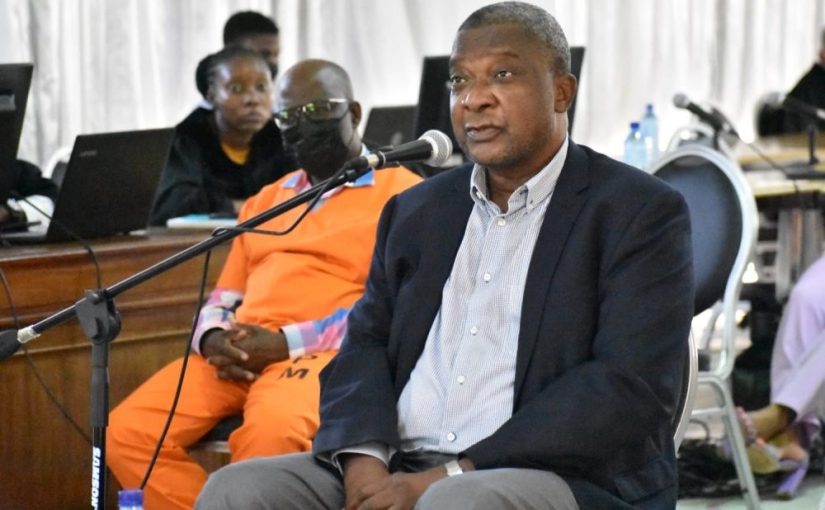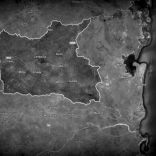Mozambique: EDM urges citizens to stop dumping solid waste at its doorsteps - Notícias
Hidden debts:: “I wanted nothing to do with security”, says former Ematum CEO- AIM report

Photo: Noticias
A former chief executive officer of the Mozambique Tuna Company (Ematum), one of the three fraudulent companies at the heart of the “hidden debts” scandal, on Monday night told the Maputo City Court that Ematum did indeed have a defence component – but he wanted nothing to do with it.
Felisberto Manuel, who was Ematum CEO from January 2016 to April 2018 said that, according to the company’s chairperson, Antonio do Rosario, one of the main defendants in the current “hidden debts” trial, Ematum was intended to undertake “maritime surveillance” as well as commercial fishing.
For Manuel, who had previously headed a major fishing company in Beira, this was not acceptable. “I wanted nothing to do with security matters”, he told the court. “I just wanted to fish for tuna”.
Three of the vessels which the Abu Dhabi based group Privinvest had sent to Ematum were not fishing boats at all. They were sea-going patrol speedboats, known as “Ocean Eagles”. Perhaps Rosario had come round to Manuel’s way of thinking – although in October he had told the court that Ematum was a disguised security operation.
But in January 2016, he authorized the transfer of the “Ocean Eagles” to Ematum’s sister company, Proindicus, which was supposed to handle coastal protection. But the speedboats remained on Ematum’s books, as part of the company’s debt – arising from the 850 million dollars loan, obtained from the bank Credit Suisse, on the basis of illicit loan guarantees granted by the government of former President Armando Guebuza.
The genuine fishing fleet that Manuel found at Ematum consisted of 21 longline vessels to catch tuna, and three trawlers that were intended to catch the squid or small pelagic fish used as tuna bait. In fact, the trawlers were never used and the squid were purchased from Argentina.
Of the 21 longliners, only nine were licensed to fish. The Privinvest owned shipyard in the French port of Cherbourg which built them refused to modify the vessels in line with Mozambican fishing regulations. At its own expense, Ematum modified the first nine boats that arrived – and then the money ran out.
While he was CEO, Manuel said, work began on modifying a further three longliners, but he was not sure if this work had ever been finished. Thus at least nine and perhaps as many as 12 of Ematum’s boats were not licensed by the Mozambican maritime authorities, and just lay uselessly at anchor in Maputo port.
Ematum was “technically bankrupt”, Manuel said. Its income from fishing was derisory. Between the first fishing trip, in December 2014 and April 2016, about 320 tonnes of tuna were caught. Manuel regarded this level of productivity as “very low”.
An Ematum longliner could remain at sea for 25 to 30 days, but only if it had enough fuel, and enough food and water for the crew. The fuel tanks could hold 33,000 litres of diesel, but sometimes the boats would set out with only 10,000 litres, which would allow just five or six days of fishing.
Manuel thought the company could only have been saved through a thorough restructuring – particularly a restructuring of its debt. The enormous debt was largely because Privinvest had massively overcharged Ematum for the boats. Each vessel (longliner or trawler) was invoiced at 22.3 million dollars.
Manuel said “the boats are good, but there’s nothing special about their equipment” that could justify such high prices. The real price for such a fishing boat, he said, should not be more than two million dollars at the most. Without a financial restructuring, it would be impossible for Ematum ever to run at a profit.
A proposal was made to reduce the price of each boat to four million dollars. The Ematum shareholders agreed to the proposal as did the Ministry of Economy and Finance. Manuel did not say what Privinvest thought of the proposal
Ematum had not been properly audited since 2014. The auditing company Ernst & Young did not complete the 2015 audit. “The 2015 accounts were never closed”, said Manuel. “Had the accounts been closed, the company would have had to declare bankruptcy”.
The auditors recommended a fresh injection of capital, but the three shareholders (all state concerns) did not react. The Ematum management was asked “to find solutions”.
The 2016 and 2017 accounts were also never closed. The company was in a desperate situation “and the shareholders took no action”, said Manuel.












Leave a Reply
Be the First to Comment!
You must be logged in to post a comment.
You must be logged in to post a comment.